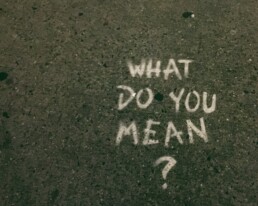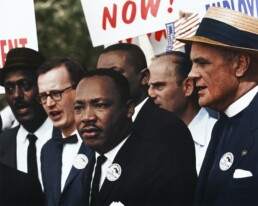Optimific: Ethics in Content Creation
Journalists have always been well versed in the importance of ethics. But when you sit on the other side of divide, and your work is intertwined with sales...where do you draw the line?
For decades, creating content has been a “thing”, often without glamour or glitz. In the 1990s, if you worked within a major organization as an editor or copy editor, for example, that was NOT considered sexy by any stretch of the imagination. But those of us who created content had a little secret — the work was intellectually stimulating and our skills were always in demand. Further, the pay was respectable, we maintained a great quality of life, and we flew just below the radar…which allowed us to avoid the political infighting.
The cool factor and ethics
Today, with conferences on creating content and cool sounding names like “content marketing” and “chief content officers,” the jig is up — content creation has become a “new, bigger thing”. Even journalists, who once got more cool points than us back office mopes, are crossing over to the “dark side.”
And like all “new, bigger things”…the attendant new and bigger problems arise. One such problem that doesn’t get the attention it deserves is the challenge of maintaining ethical standards. Journalists have always been well versed in the importance of ethics. But when you sit on the other side of divide, and your work is intertwined with sales…where do you draw the line?
Promoting the greatest good
In the coming weeks, we’ll explore the issue of promoting ethical decision making when creating content. But for starters, let’s consider one of my favorite words — one that nobody ever seems to know (even my old Lit professor) — “optimific”. The term “optimific” is used in the world of philosophy to mean “that which promotes the greatest good.”
Consider it a sort of moral evaluation. For instance, how do you measure the “goodness” of something?
Philosophers like Immanuel Kant argued that certain rules are inviolable, such as respecting humanity. On the other hand, hedonism sets the ethical bar much lower, valuing that which produces the most pleasure.
Meanwhile, two of my favorite philosophers – Jeremy Bentham and John Stuart Mills a.k.a. proponents of utilitarianism – focus less on the intent and more on the outcome. Utilitarianism would ask us to consider the degree of “good” produced versus the “bad”. That’s where the term “optimific” enters the equation. Which act promotes the greatest good?
A practical example of this is when a company’s white paper is really a camouflaged product brochure. Are native advertisements looking a wee too similar to editorial content? And of course, there’s no shortage of media outlets willing to print “stories” (quotes intentional) designed for the sole purpose of triggering base human emotion rather than informing their audience.
Most organizations claim they draw a clear line when it comes to their standards in creating content. Regrettably, that line can quickly vanish when dollars are on the table.
Utilitarianism and creating content
Now back to our word of the day. Within utilitarianism, there’s act utilitarianism, which focuses on “acts” that promote good. For example, is it wrong to take the organs of a living person to save the lives of four other people? Or think about an example that is closer to home (unless you’re actually involved in harvesting organs): Should your thought leadership content promote your company’s products and services? Or should it focus on issues that executives in your industry truly care about?
Meanwhile, rule utilitarianism considers “rules” that yield the greatest good. For you organ harvesters out there, imagine how fragile society would be if randomly killing healthy people was permissible.
And for those of us involved in content, are those “Best of… Lists” really the “best”? Should big advertisers be afforded greater access to editors, and enlisting them to speak at events? Ultimately, rule utilitarianism asks that we think about what is optimific for society over the long term.
The happy pig
The moral imperative for content creators is this: rather than allowing the loudest voice, dollars and cents, or keeping up with the competition to be our compass when creating content, we should rely on an optimific set of criteria. I know this can be easier said than done. But when you find yourself in an ethical quandary, channel your inner John Stuart Mill:
“It is better to be a human being dissatisfied than a pig satisfied; better to be Socrates dissatisfied than a fool satisfied. And if the fool, or the pig, are of different opinions, it is because they only know their own side of the question.”
Does AI in Thought Leadership Represent a Race to the Bottom?
April 25, 2024
I’m the first to admit that I don’t have the answers to all the mysteries of the universe. But when creating public-facing white papers, research, commentaries, and other forms of content, I definitely have some concerns.
0 Comments6 Minutes
Is Meritocracy a Myth?
November 14, 2023
The New York Times recently published an article, Stuyvesant High School Admitted 762 New Students. Only 7 Are Black.
0 Comments4 Minutes
Reflections on the Civil Rights Movements, Photos, and My Dad
September 24, 2022
When the Rev. Dr. Martin Luther King Jr. was assassinated, the African American community fell into a collective state of mourning - but not necessarily disbelief.
0 Comments2 Minutes
Get the Most out of Your Marketing Efforts with Clear Language
We analyzed the top 100 asset management firm websites for readability. Among the 80+ websites that we scanned, we came away with some interesting findings.
In the mid-1990s, I stumbled upon a career as a financial editor. After starting at an investor relations consulting firm, I eventually went to work with Standard & Poor’s. I still remember my first high-level meeting (which, in retrospect, might not have been that high profile). This was an opportunity to rub elbows with the movers and shakers.
One of the managing directors ran the meeting. He and I always exchanged pleasantries—and I looked forward to seeing him in action. Was I impressed? Befuddled, perhaps. Confused, absolutely. He was speaking in English and I understood each word in isolation. But the way he structured his sentences left me bewildered. Words like synergy, integrated, leverage, etc. all have vague meanings, and were even more vague on that fateful day.
Over time, it became apparent that this wasn’t an isolated incident. Rather, there seemed to be an unspoken rule in the financial services industry that complex language makes you sound smart. For example, who could forget (or even understand) Alan Greenspan’s 1996 “irrational exuberance” quote:
“But how do we know when irrational exuberance has unduly escalated asset values, which then become subject to unexpected and prolonged contractions as they have in Japan over the past decade?”
The above requires you to read at a grade level of 17.6. In other words, he was speaking to someone in his or her last semester of getting a master’s degree.
Even though this unfortunate trend of using complex syntax continues today, the reality is that rather than impressing people, it has the opposite effect. Just ask Daniel M. Oppenheimer. He’s a former Princeton University professor who won the 2006 Nobel Prize in Literature for his ironically titled paper, “Consequences of Erudite Vernacular Utilized Irrespective of Necessity.” Among other things, he discovered that needless complexity in language creates a negative impression among your audience rather than a favorable one.
Fast forward to today. With the massive shift toward mobile technology and digital advertising, many asset management firms are revolutionizing how they engage with their clients. In our report, we’ve explored how effectively the asset management industry is using language as part of its marketing efforts. Using Clarity Grader, a proprietary tool created by Visible Thread, we’ve scanned the websites of the world’s largest asset management firms. We then created the Visible Thread/LOQUATIO asset management index based on characteristics such as readability, passive language, sentence length and complexity. The findings are interesting—and also instructive for asset management firms that want to strengthen their brands and gain the public’s trust through clear language.
To receive a copy, please drop us a note here.
“But how do we know when irrational exuberance has unduly escalated asset values, which then become subject to unexpected and prolonged contractions as they have in Japan over the past decade?”
Does AI in Thought Leadership Represent a Race to the Bottom?
April 25, 2024
I’m the first to admit that I don’t have the answers to all the mysteries of the universe. But when creating public-facing white papers, research, commentaries, and other forms of content, I definitely have some concerns.
0 Comments6 Minutes
Is Meritocracy a Myth?
November 14, 2023
The New York Times recently published an article, Stuyvesant High School Admitted 762 New Students. Only 7 Are Black.
0 Comments4 Minutes
Reflections on the Civil Rights Movements, Photos, and My Dad
September 24, 2022
When the Rev. Dr. Martin Luther King Jr. was assassinated, the African American community fell into a collective state of mourning - but not necessarily disbelief.
0 Comments2 Minutes







